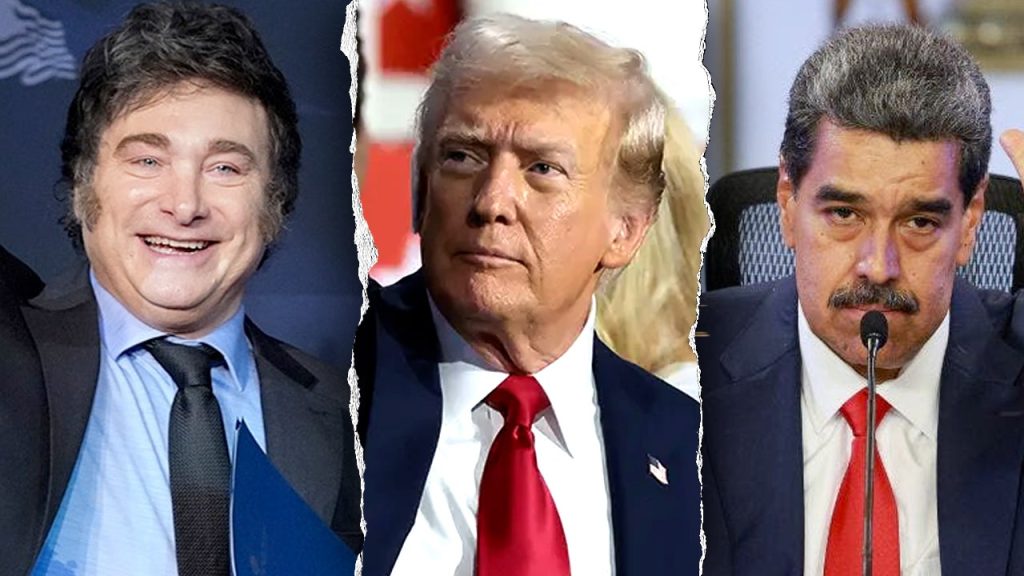The recent victory of Donald Trump in the U.S. has given rise to varied sentiments among countries in Latin America, particularly among those that have traditionally positioned themselves as adversaries of U.S. interests. Many of these nations express concern over potential shifts in U.S. foreign policy that could negatively impact their domestic and regional agendas. Notably, countries with authoritarian regimes, such as Cuba, Venezuela, Nicaragua, and Bolivia, have been warned that they may need to temper their aggressive stances and provocations in the face of a reinvigorated American foreign policy posture under Trump, particularly one characterized by a robust emphasis on national sovereignty and the America First doctrine. Joseph Humire, Executive Director of the Center for a Secure Free Society, theorizes that these nations have a history of destabilizing their neighbors but might reconsider their actions with the prospect of facing greater U.S. monetary and political repercussions.
Significant attention is focused on Mexico, especially in light of its close economic ties and shared border with the U.S. The incoming administration’s likely changes in immigration and trade policies are a primary concern for President Claudia Sheinbaum’s government, which is apprehensive about stricter immigration controls and the potential renegotiation of trade agreements that could adversely impact the Mexican populace and economy. Meanwhile, Colombia’s President Gustavo Petro is troubled by the implications of a more stringent U.S. approach to drugs and security cooperation, fearing it could hamper ongoing peace negotiations and exacerbate issues with narcotics trafficking.
Governments classified as part of the “troika of tyranny,” particularly in Cuba, Nicaragua, and Venezuela, anticipate a toughening of U.S. sanctions and diplomatic isolation under Trump’s leadership. The appointment of Marco Rubio as Secretary of State suggests a hardline stance against these regimes, further adding to their anxiety. Chilean economist Axel Kaiser believes that Rubio’s influence will lead to a concerted effort to counter left-wing authoritarianism across Latin America. He foresees a scenario where Rubio effectively supports democratic transitions, particularly in Venezuela, hence reviving hope among nations grappling with socialist governance. Kaiser posits that this shift in U.S. policy would not only impact leftist governments but would also boost conservative factions across the continent.
The news of Trump’s election has brought optimism among a new wave of conservative leaders in Latin America, notably with individuals like Argentine President Javier Milei, who share similar pro-market ideologies with Trump. Milei is actively seeking U.S. assistance for critical economic reforms and is looking to secure additional funding through loans from the International Monetary Fund. This renewed bilateral relationship is viewed as crucial for stabilizing Argentina’s economy amidst prevailing financial challenges. The anticipated alignment between right-leaning governments in Brazil and Trump’s administration could likewise promote partnerships centered around trade and mutual security interests, highlighting a potential for increased U.S. investments in Brazil’s infrastructure and energy sectors.
However, the reaction among ruling socialist leaders in the region illustrates a mix of alarm and introspection. Colombian Senator Paola Holguin perceives significant repercussions for authoritarian leaders in the region, asserting that they will find less support from the U.S. in their undertakings. Holguin emphasizes the risk that countries like Colombia may face a shift in the U.S. agenda, especially regarding critical issues tied to drug control and political alignment. The fear in these quarters, despite having maintained diplomatic ties with the U.S. for over two centuries, is palpable; she underscores that even conciliatory overtures from Petro and Maduro signify their concerns about the impending changes in U.S. policy dynamics under Trump.
Ultimately, while there are indications that various Latin American countries could experience favorable changes under Trump’s administration, experts warn that the real benefits will heavily depend on the specific foreign policy actions taken and the quality of bilateral relationships forged. Countries with strategic interests may find opportunities, albeit contingent upon navigating the complexities of a newly assertive U.S. stance that seeks to reclaim the nation’s influence in regional matters. As emerging political leaders in Latin America gear up to align themselves more closely with U.S. policy under Trump, the overarching narrative reflects a broader contest of ideologies and governance that will shape the future course of the region.

